The first evening at the new barn, Tonka did not eat all of his grain. The owners and staff were concerned. I took Tonka’s temperature. It was a healthy 99º F. Other than ignoring his meal, he looked okay. By morning, the grain was gone, his manure piles were normal, and he was eating. No worries.
But all week I felt that Tonka was a tad subdued. At the previous farm, when Tonka saw me by the barn, he’d nicker and trot down the paddock’s hill to greet me. Here he kept chewing his hay.
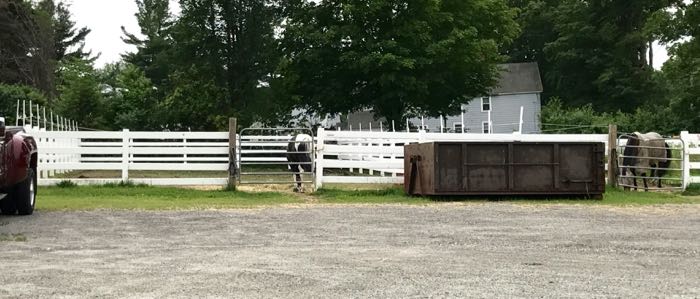
Depending on my own state of mind I could have interpreted that in any number of ways. One one hand, I could have said that he was depressed and missing his friends. On the other, I could have said that he was so relaxed that he’d rather eat his hay than come to the gate. I did think that Tonka looked tired, and I noticed that he hadn’t been sleeping lying down – I knew because there were no shavings in his tail. (Horses only get their deep, REM sleep when lying down.) Most likely, he’d stayed up at night, looking out his door. I wonder what critters he became acquainted with after dark.
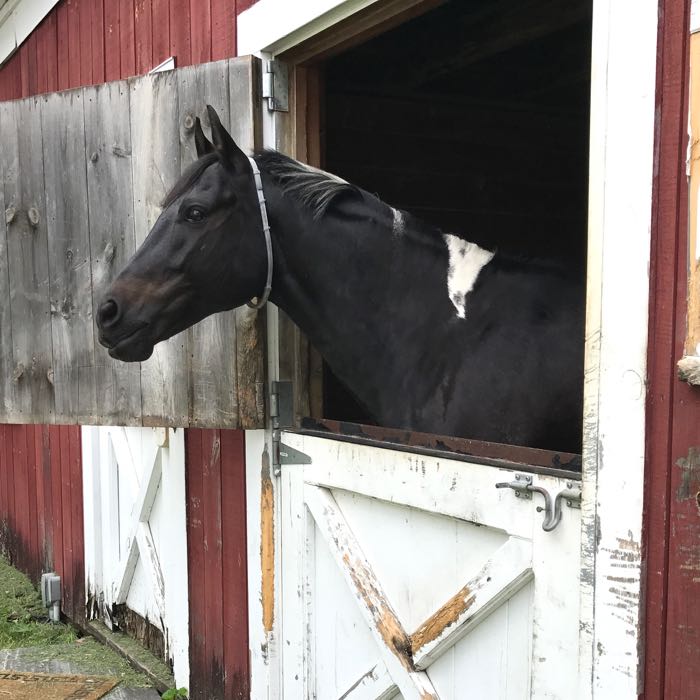
Moving to a new home is stressful for horses who are social animals and need to know how they fit into the herd. I made a point of doing what I could to make Tonka feel secure. Grooming is a way that horses feel accepted, so I made a point of not rushing the brushing. Because the horses are kept in individual paddocks, I grazed Tonka within view of the other horses. That way he’d get to know all of the boarders, even those not within sight of his stall or paddock. Everyone was quiet and calm, and Tonka felt safe enough to relax while eating.
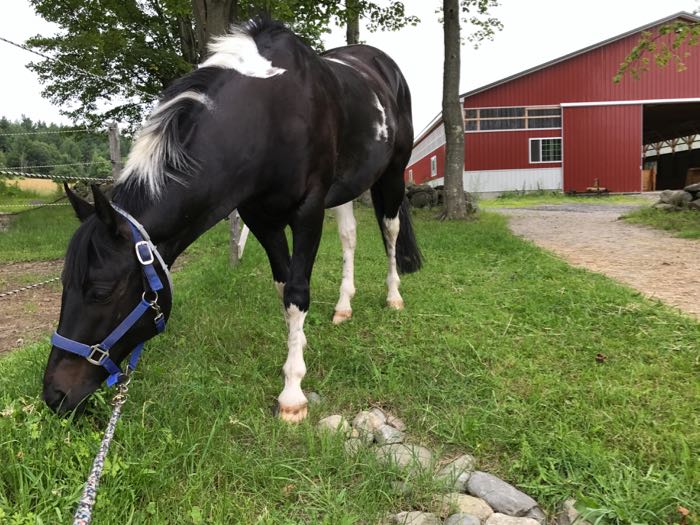
Although Tonka wasn’t overtly anxious, all week his personality seemed a bit constrained. I know I’ve felt like that when thrust into a new social situation!
Yesterday Tonka was back to normal. He still doesn’t finish his supper right away. In fact, it takes him all night! At the previous barn, the horses could see each other, and Tonka’s neighbor threatened and kicked their shared stall wall. Here, he can eat in peace.
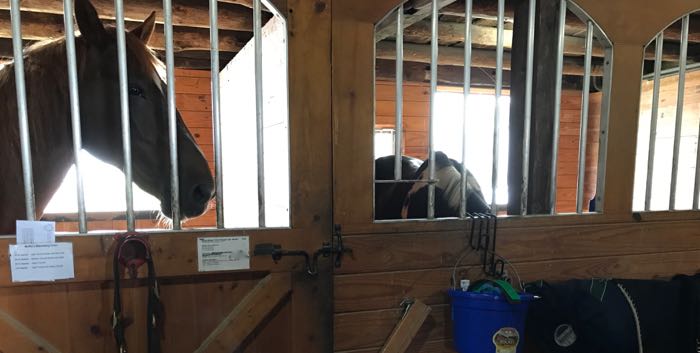
Tonka can take his time. He likes to take a mouthful of hay and chew a bit. Then take a nibble of his grain. Then go look out the door.
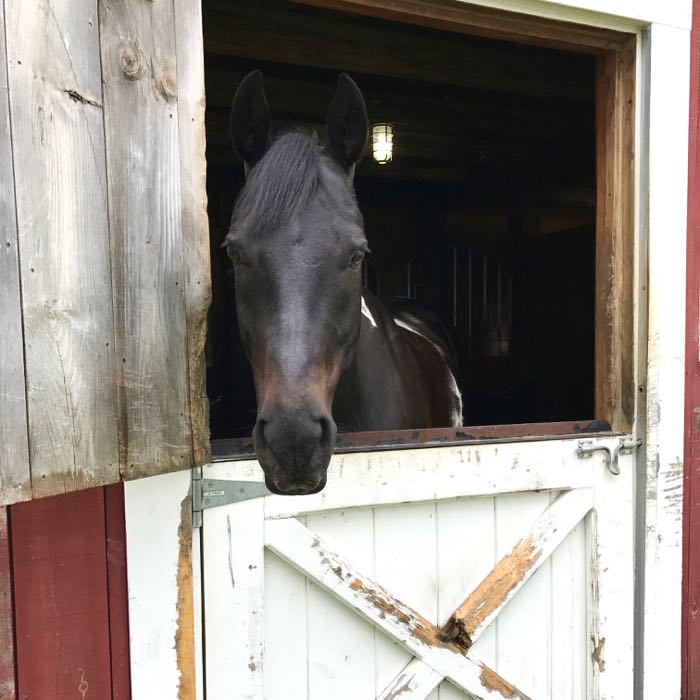
Then go back to his grain. He can make the silly faces that he likes to make while eating.
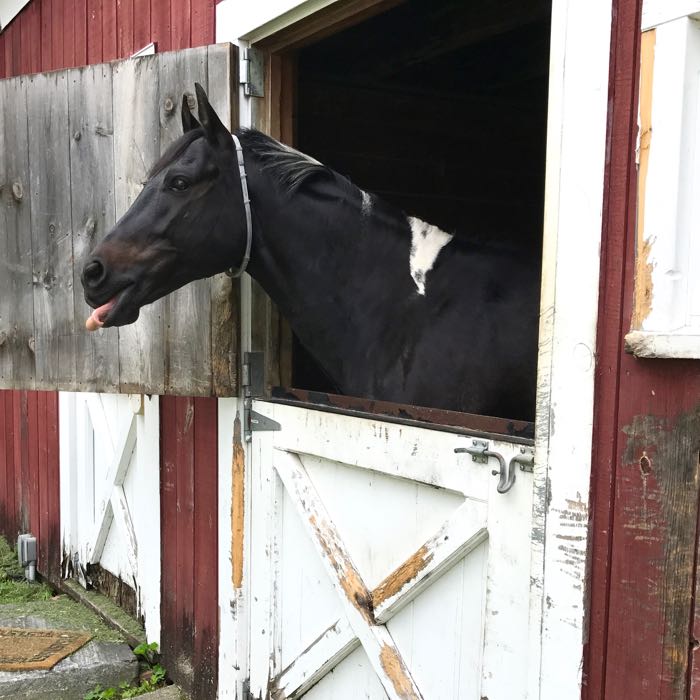
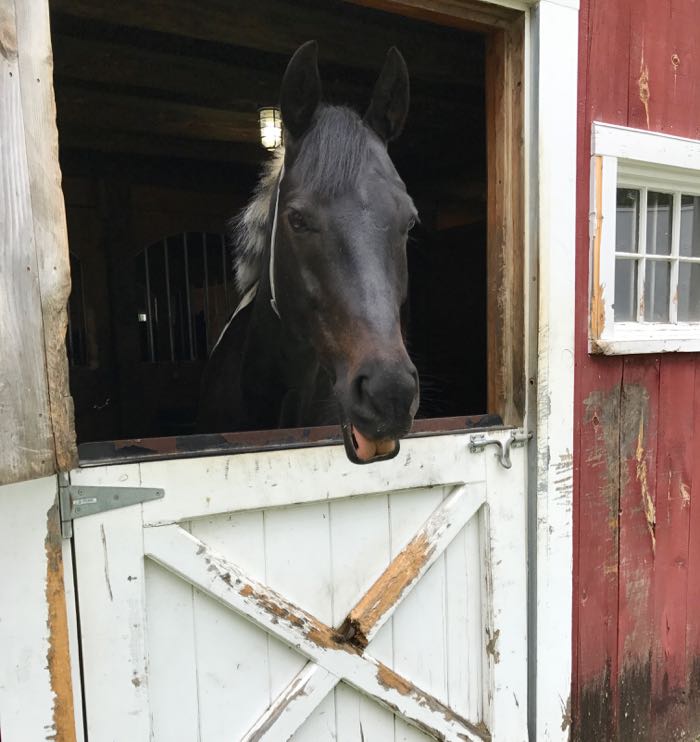
Tonka does look rather happy, doesn’t he? It’s beginning to feel like home.
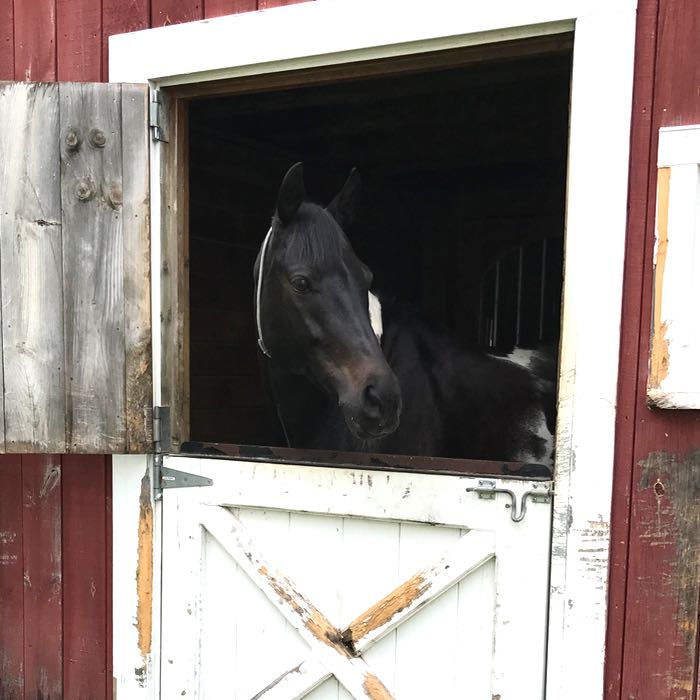
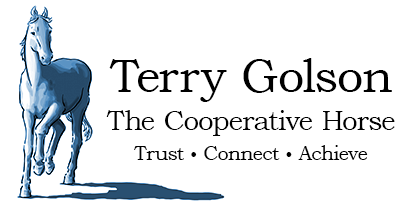

Seems like Tonka is settling in quite well. It’s good he can relax and eat slowly. The 2 new horses we got took a long time to really get settled in. The one horse was actually dangerous when he was separated from the other horse, a mare, even though our resident mare was near him and not threatening at all. We had to try several different situations before we finally hit on one that has seemed to work, and he is like a different horse now. The mare has quit running off the other horses from her hay now also. She had been living in a field with other horses and not handled for some over a year, and I guess she had to guard her feed there. So finally everyone is relaxed and happy, including me.
Separation anxiety is a common problem, and can make handling horses difficult. What was the situation that worked for your group?
This might be kind of long. First we tried separating him from the mares at feeding time and at night where he could see them, but from a distance. That sort of worked, but he still went nuts for a while when we took his mare out at feeding time. Long story short, we finally started feeding him in the barn with the mares, only problem was when we took him last or second, he went nuts, and when we took him first he would rear up and try to come out over the gate of the stall before we could even get his halter off. Treats didn’t help at all, he was absolutely focused on that mare as if we didn’t exist, bad, dangerous situation for him and us. So we started putting treats in his feed box, letting the mare come along with him at the same time we took him in, and after a while doing that I guess he started realizing it was OK and now he is almost, but not entirely, over a lot of that separation anxiety. When I say a while, I mean several months. He has learned a lot though, the people who had him treated him like a big dog, he was hard to lead, had no manners, was always looking for treats every time he saw us, but now he’s had some lessons in leading and manners and is doing a lot better. I hope this isn’t too long, it’s actually an abridged version.
Not too long! Separation anxiety is often heightened by the sort of neglectful handling you mention – I see manners as life skills, not discipline. Without those skills, for the animal, basic interactions can be fraught with anxiety. Without manners (and their consequences) the world doesn’t make sense – the only safe thing he knew was the mare. When faced with a dangerous animal like that, it can be hard to tease apart the behavior and get to the root of it without resorting to punishment. You did (and are continuing to do) a brilliant job.
Thank you, I like your observation on the mare being the only safe thing he knew. He actually has a really nice personality, is becoming a nice horse to be around and ride. Next thing I’m working on is “head down”.
wonderful
I guess that just like us, it takes a bit of time to settle into a new place.
What is the white loop around Tonka’s head, please?
Tick collar. Lyme disease is epidemic around here and topical sprays aren’t enough to keep the ticks off. We’re hoping that dog tick collars will help.